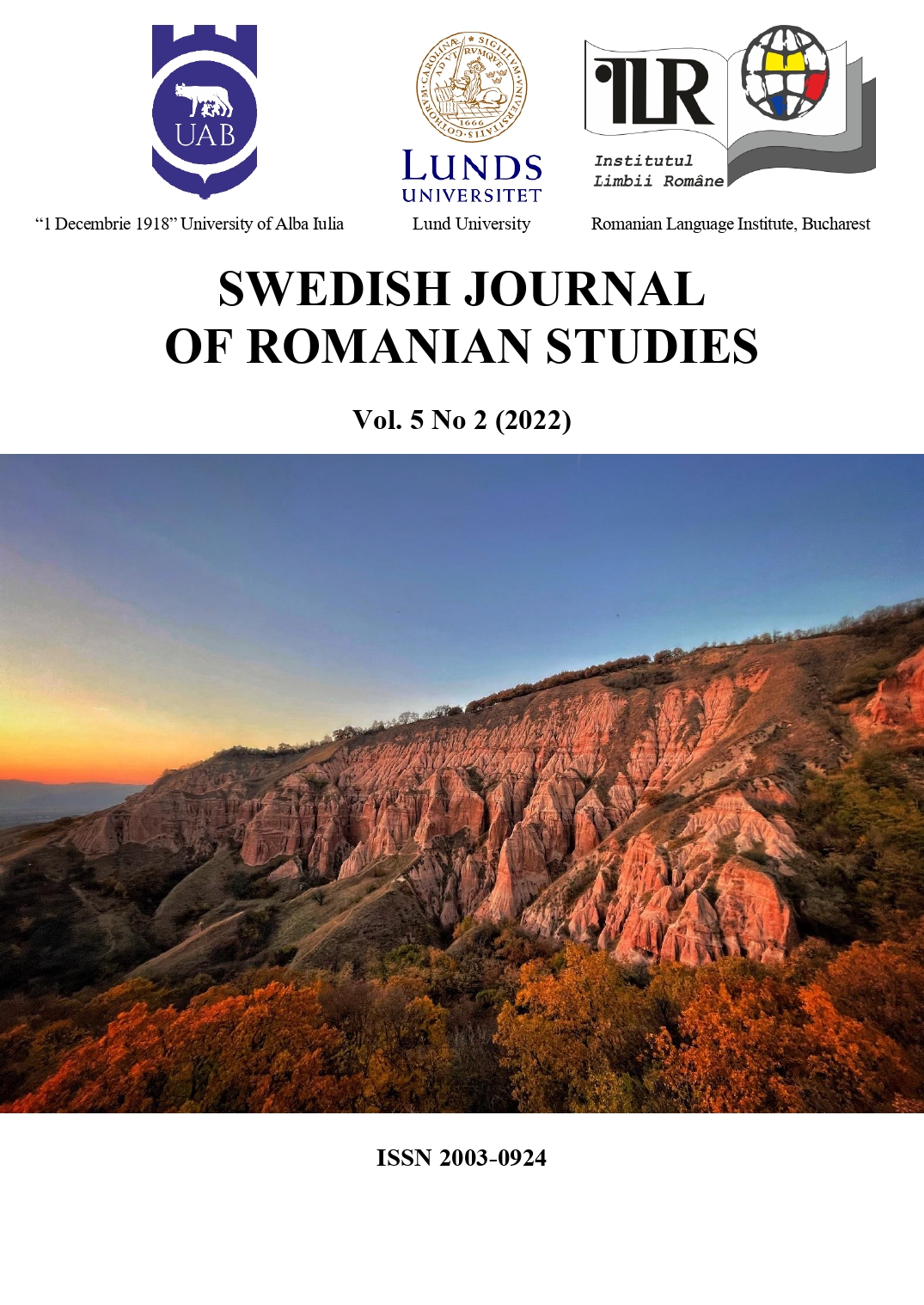Instances of (un)translatability in Ion Creangă’s “Amintiri din copilărie”/”Memories of my boyhood”
DOI:
https://doi.org/10.35824/sjrs.v5i2.23925Keywords:
untranslatability, vernacular, Ion Creangă, minor literature, pragmatic stylisticsAbstract
These days, writing about untranslatability may seem courageous, as more and more voices associate this issue with translation incapacity and, instead, advocate for creative remedies or even reject such an instance. This study does not deal with a contemporary novel, nor does it have to do with a powerful textual space. However, we believe that translation theories mainly focus on analyses of a certain category of languages, and raise questions of discrepancies between subordinate and dominant cultures, a tendency which derives from the proneness of the international publishing industry to favour certain languages and types of writing. We are not aiming for a debate around the subject of publishing politics or endeavours, but rather we try to cast some light on the ambitious project of rendering vernacular into a powerful language. This paper deals with the work of a great Moldavian storyteller who contributes significantly to the enhancement of expressiveness through linguistic characteristics that occur informally. We hypothesise that the vibrant vernacular writing “Memories of my boyhood” creates potential instances of untranslatability, due to significant differences between the Romanian variety and English, not necessarily in the linguistic inventory but rather in the cognitive structures of the readership. Therefore, the case study focuses on how source text and target text readers infer meaning from interjections and terms of address, originally belonging to the Moldavian modes of expression. Although the translators re-create these short utterances, due to a lack of a similar background from the part of the receiving culture, we witness a limitation on conveying their original intentionality, emotion and plethora of meanings.
References
Apter, E. (2013). Against world literature: On the politics of untranslatability. London/New York: Verso.
Bade. (n.d.). Dex definiție. Retrieved February 4, 2022 from: http://dexdefinitie.com/bade.html
Baker, M. (2018/2011). In other words: A coursebook on translation (3rd ed.). London/New York: Routledge. Original work published 2011.
Cassin, B. (2014). Dictionary of Untranslatables: A philosophical lexicon. Princeton: Princeton University Press.
Călinescu, G. (1998). Viața și opera lui Ion Creangă/ Ion Creangă’s life and work. Chișinău: Litera.
Călinescu, G. (2001). Istoria literaturii române: Compendiu/ The history of Romanian literature: Compendium. București: Litera Internațional.
Cenac, O. (2014). Translating cultural and historical coordinates in Ion Creangă’s Memories of my boyhood. In Procedia-Social and Behavioural Sciences, 137, 158-164.
Chesterman, A. (1997). Memes of translation: The spread of ideas in translation theory. Amsterdam: John Benjamins.
Cosma, S.V. (2014). Preotul ca „intelectual” în lumea țărănească a românilor din Transilvania secolului al XIX-lea/ The priest as ‟intellectual” in the Romanian rural society of Transylvania in the XIXth century. In Seminatores in Artium Liberalium Agro. Studia in Honorem et Memoriam Barbu Ștefănescu. Oradea: Editura Academiei Române. 101-110.
Creangă, I. (1978). Memories of My Boyhood, Stories and Tales. București: Minerva.
Creangă, I. (2013). Ion Creangă: Amintiri din copilărie, Povești, Povestiri. București: Humanitas.
Damrosch, D. (2003). What Is World Literature?. Princeton: Princeton University Press.
Iordan, I. (1937). Limba lui Creangă/ Creangă’s language. Viața românească, XXIX(11). 71-75.
Ionescu-Ruxandoiu, L. (1978). Observatii asupra stilului narativ in poveștile lui Ion Creangă/ observations on the narrative style in Ion Creangă’s tales. In SCL, 29, (5). 559-562.
Jakobson, R. (1971). Selected writings: Word and language. The Hague/Paris: Mouton.
Large, D. (2019). The untranslatable in philosophy. In D. Large, M. Akashi et al (Eds.), Untranslatability: Interdisciplinary Perspectives. 50-63.
Moretti, F. (2000). Conjectures on World Literature. New Left Review, 1. 54-68.
Panagiotidou, M.E. (2014). Intertextuality and the Pragmatics of Literary Reading. In S. Chapman, & B. Clark (Eds.). Pragmatic Literary Stylistics.132-151.
Rusu, V. (1959). Formule de adresare în limba română (‟mă”, ‟măi”)/ Addressing forms in the Romanian language (‟mă”, ‟măi”). Limba Română, An 8(1). 52-60.
Taylor, B. (2021). Untranslatability: The rebirth of theory? In Journal of Comparative Literature and Aesthetics, 44(4). 16-30.
Tohăneanu, G.I. (1965) Considerații cu privire la stilul artistic al lui Ion Creangă/ Considerations on Ion Creangă’s artistic style. In Limba română, XIV(5). București: Editura Academiei. 453-466.
Venuti, L. (2008/1995). The translator’s invisibility: A history of translation (2nd ed.). London/New York: Routledge. Original work published 1995.
Venuti, L. (2016). Hijacking translation: How comp lit continues to suppress translated texts. Boundary 2, 43. 179-204. DOI: https://www.doi.org/10.1215/01903659-3469952
Vinokur, V., & Réjouis, R. (2018). On collaborative translation. In S.J. Levine, & K. Lateef-Jan (Eds.), Untranslatability goes global.18-28.
Downloads
Published
How to Cite
Issue
Section
License
Copyright (c) 2022 Andra Iulia Ursa

This work is licensed under a Creative Commons Attribution-NonCommercial 4.0 International License.
Authors who publish with this journal agree to the following terms:
a. Authors retain copyright and grant the journal right of first publication with the work simultaneously licensed under a Creative Commons Attribution-NonCommercial 4.0 International License that allows others to share the work with an acknowledgement of the work's authorship and initial publication in this journal.
b. Authors are able to enter into separate, additional contractual arrangements for the non-exclusive distribution of the journal's published version of the work (e.g., post it to an institutional repository or publish it in a book), with an acknowledgement of its initial publication in this journal.
c. Authors are permitted and encouraged to post their work online (e.g., in institutional repositories or on their website) prior to and during the submission process, as it can lead to productive exchanges, as well as earlier and greater citation of published work (See The Effect of Open Access).

